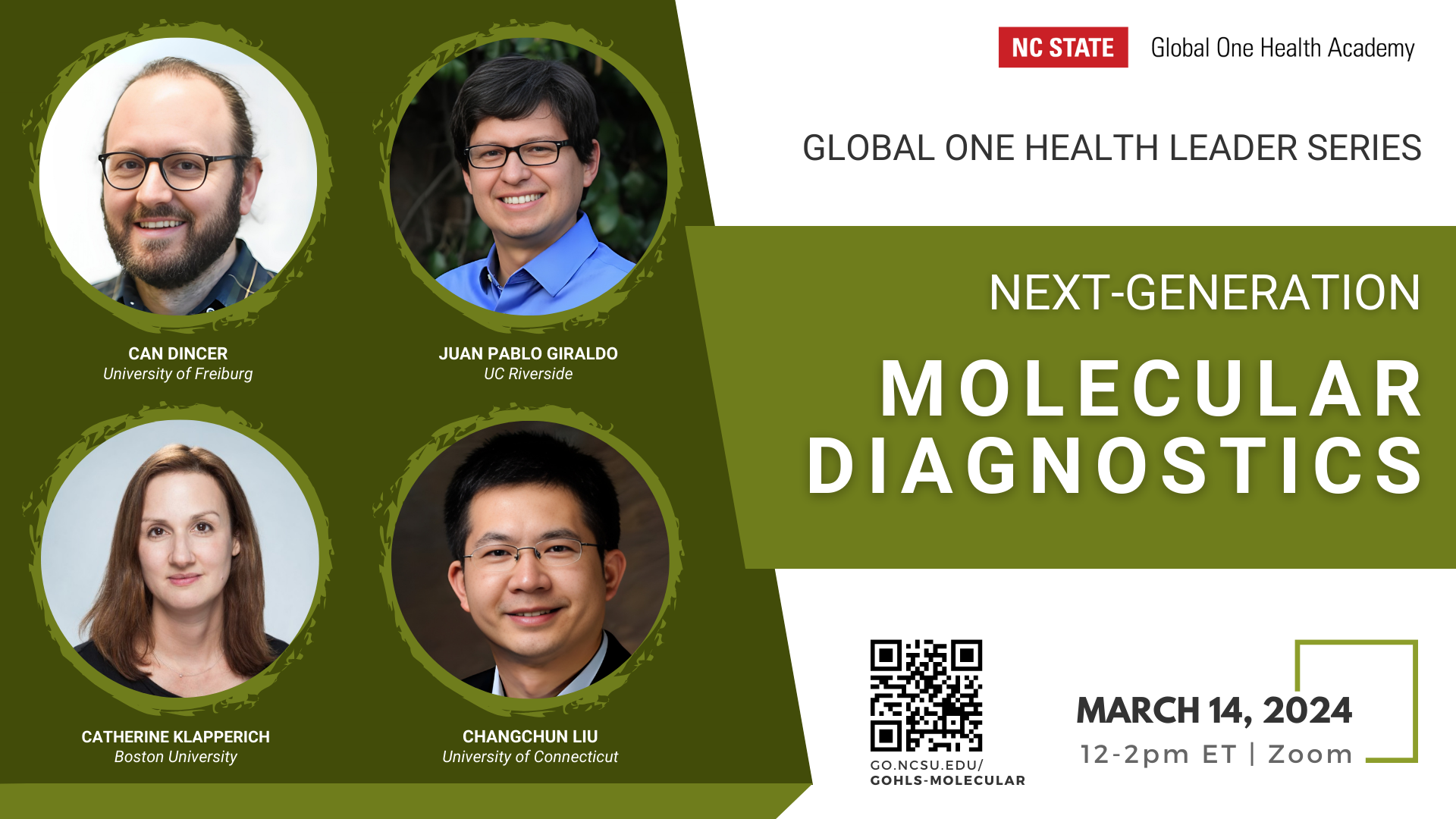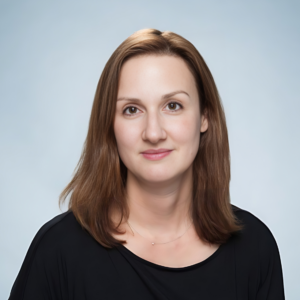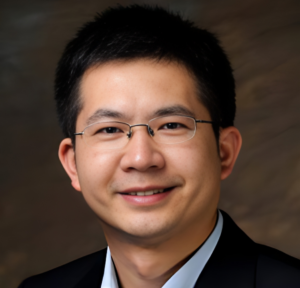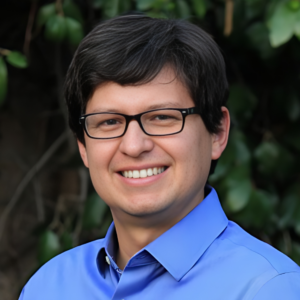Global One Health Leader Series, March 14: Next-Generation Molecular Diagnostics

Date: March 14, 2024 | 12-2 p.m. ET
Location: Zoom
Join the Global One Health Academy as we kick off the Global One Health Leader Series (GOHLS). During this series, One Health experts will present new research and findings related to global One Health, and engage in panel discussions that enhance interdisciplinary perspectives and advance the field.
The first GOHLS event will feature short presentations from experts in molecular diagnostics followed by an engaging panel discussion. Speakers will share their cutting-edge work on molecular diagnostics for infectious diseases across human, animal, and plant systems.
Check out our speakers and learn more about their talks below!
Talk 1: Point of Care Diagnostics for Sexually Transmitted Infections

Abstract & speaker bio
Abstract: Dr. Klapperich will discuss advancements that have made nucleic acid-based testing possible in portable, paper-based formats. Applications of these technologies for the detection of common and curable sexually transmitted infections will be covered. Her lab has demonstrated that many sample preparation steps can be performed on paper (Lab Chip, 2016,16, 753-763) and in traditional plastic microfluidics (Anal. Chem. 2006, 78, 3, 788–792) as effectively as in more complicated protocols requiring centrifugation or vacuum manifolds. These methods have been used and elaborated on by many groups around the world. More recently, Dr. Klapperich has shown using paper-based systems that semiquantitative measurements of viral load are possible with the potential to expand viral load testing to more communities impacted by HIV and HBV worldwide (Anal. Chem. 2022 https://doi.org/10.1021/acs.analchem.1c05039). She has also developed new molecular techniques on paper to increase the sensitivity of point of care assays for malaria (Anal. Chem. 93 (4), 2097-2105, 2021).
About the speaker: Dr. Catherine Klapperich is Professor of Biomedical Engineering. She is the Research Director of the DAMP Lab at Boston University. She was the Founding Director of the BU Precision Diagnostics Center, and currently serves as its Associate Director. Professor Klapperich holds appointments in the Division of Materials Science and Engineering and the Department of Mechanical Engineering. In 2014, Dr. Klapperich was elected a Fellow of the American Institute for Medical and Biological Engineering, in 2018 a Fellow of the Biomedical Engineering Society, and a fellow of the AAAS in 2020. She was the Dorf-Ebner Distinguished Faculty Fellow from 2014-2019. Dr. Klapperich’s research is focused on point of care testing, women’s health, continuous physiological monitoring and engineering medical devices for use in low resource settings.
Talk 2: CRISPR-powered Microfluidic Biosensing Systems for Next Generation Molecular Diagnostics

Abstract & speaker bio
Abstract: Simple, rapid, and sensitive molecular detection plays a crucial role in early diagnosis and treatment of diseases. CRISPR technology has recently emerged as a powerful biosensing tool for point of care molecular diagnostics when coupled with microfluidics technology. In this talk, I will present the development of CRISPR diagnostic technologies. I will introduce our recent effort of integrating CRISPR assay with microfluidic technology to develop low-cost CRISPR-based biosensing systems for detection of infectious diseases. These simple, sensitive, and affordable diagnostic tools exhibit potential for next generation molecular diagnostics of diseases.
About the speaker: Changchun Liu is a professor in the Biomedical Engineering Department at the University of Connecticut Health Center. He received his Ph.D. in Physical Electronics at the Institute of Electronics, Chinese Academy of Sciences (IECAS), China. He has a highly interdisciplinary background and training spanning Engineering (i.e., electronic, mechanical), Chemistry and Biomedicine. Dr. Liu’s research interests include the development of synthetic biology, CRISPR technology, microfluidics technology, biosensors, and their biomedical applications with a focus on point-of-care molecular diagnostics of infectious diseases and cancers. He was a recipient of the NIH Career Development Award (K25) in 2012-2017, the Penn One Health Award in 2015, and the W.W. Smith Charitable Trust Research Award in 2016.
Talk 3: Nanotechnology Approaches for Monitoring and Engineering Plant Health

Abstract & speaker bio
Abstract: Advancing towards sustainable agriculture, energy, and biomanufacturing for a growing human population requires novel and convergent approaches to engineer photosynthetic organisms. My research group develops nanotechnology tools to engineer and study plants and algae. We have created optical nanosensors to establish communication between photosynthetic organisms and electronic devices for monitoring plant health. My lab has elucidated design rules for developing biocompatible nanocarriers that target the delivery of chemicals and genetic elements for engineering plant responses to stress. Using nanotechnology and bioengineering approaches, my research group seeks to control photosynthetic organisms turning them into augmented environmental sensing devices and biopharmaceutical manufacturing technologies.
About the speaker: Juan Pablo Giraldo is an Associate Professor at the University of California, Riverside. Dr. Giraldo is also a Co-Investigator of the National Science Foundation (NSF) Center for Sustainable Nanotechnology. He received his Ph.D. in Biology from Harvard University (2011) and two Bachelor’s degrees in Biology and Physics from University of Los Andes (Bogota, Colombia). As an NSF Postdoctoral Fellow, he developed nanotechnology approaches for engineering plants in the Department of Chemical Engineering at the Massachusetts Institute of Technology (2011-2015). His research group develops nanotechnology tools to study and engineer photosynthetic organisms. Dr. Giraldo has authored more than 50 peer reviewed journal articles, reviews, and patents (h-index 28). The Giraldo research group has been supported by multiple awards ($4M) from NSF Biological Sciences, Engineering, and Chemistry divisions, the Department of Energy (DOE), and the United States Department of Agriculture (USDA). His research team is also funded by industry grants (BASF) to translate targeted nanocarrier research into commercial technologies.
Talk 4: CRISPR-Powered Multiplexed Biosensors for Point-of-Care Management of Infectious Diseases

Abstract & speaker bio
Abstract: Nucleic acid testing is decisive for the diagnosis and treatment monitoring of infectious diseases. Over the last years, particularly the (re)emergence outbreak of infectious diseases (such as COVID-19 caused by the virus SARS-CoV-2) further stimulates the development of novel tools for nucleic acid diagnostics. Beside its wide application in gene editing, CRISPR technology provides a powerful method for the highly sensitive and selective quantification of nucleic acids. In this talk, first a short introduction into the CRISPR-powered diagnostics will be given. Then, an electrochemical microfluidic multiplexed biosensor (BiosensorX) for CRISPR-powered point-of-care diagnostics of COVID-19 will be presented. Without any target amplification, CRISPR-BiosensorX offers a low-cost, easily scalable and multiplexed approach for on-site diagnostics of nucleic acids and other biomolecule classes (such as drugs like ß-lactam antibiotics) simultaneously.
About the speaker: Dr. Can Dincer is currently junior research group leader at FIT & IMTEK of the University of Freiburg. The main research interest of his group “Disposable Microsystems” is the development of bioanalytical materials/sensors/microsystems and their combination with data science and artificial intelligence for various applications including diagnostics, especially for point-of-care diagnostics and wearables, food and environmental monitoring. Having completed his studies in microsystems engineering, he received in 2016 his PhD degree with honor from the University of Freiburg. Between June 2017 and June 2019, Dr. Dincer also worked as a visiting researcher at the Department of Bioengineering at the Imperial College London. Since September 2019, he is also an Associate Editor of the journal “Biosensors and Bioelectronics” (Elsevier). In June 2022, Dr. Dincer has joined to the International Advisory Board of the journal “Advanced Sensor Research” (Wiley).
- Categories:


